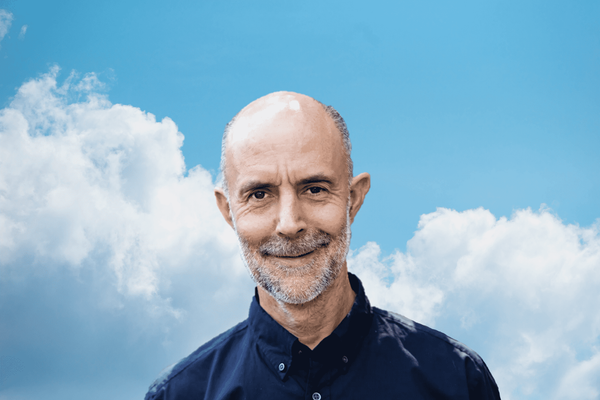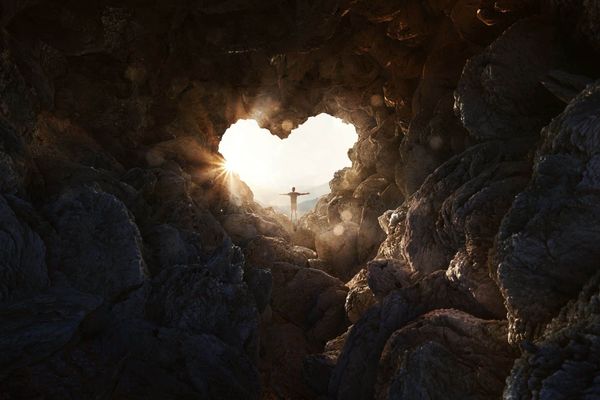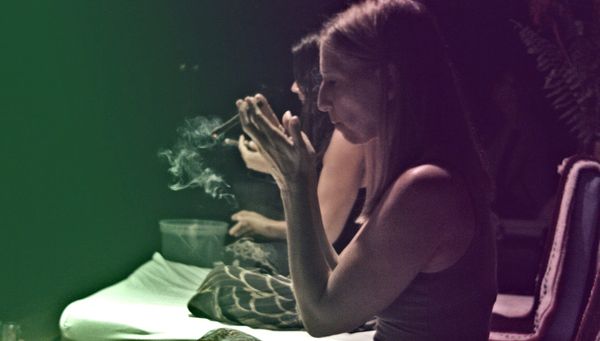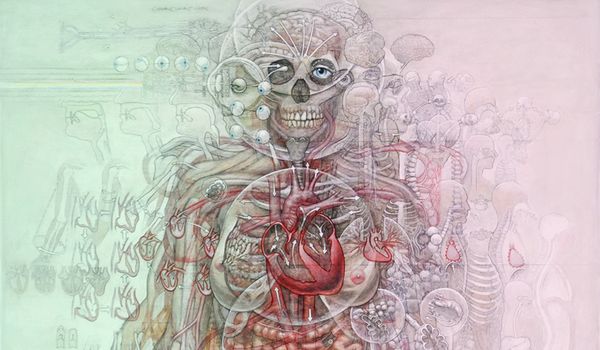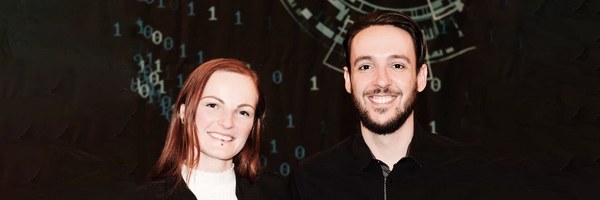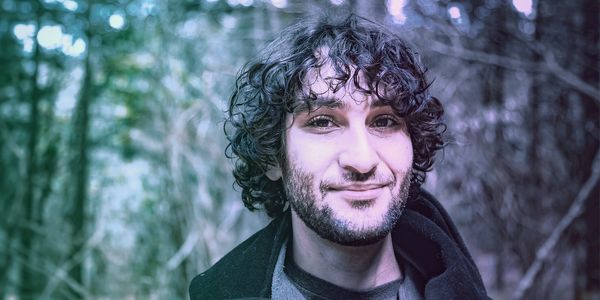Jordan Bates • • 7 min read
Sam Harris on Why We Need to Rehabilitate the Word “Spirituality”
Consciousness & Meditation Psychedelics & Drugs Psychology & Happiness
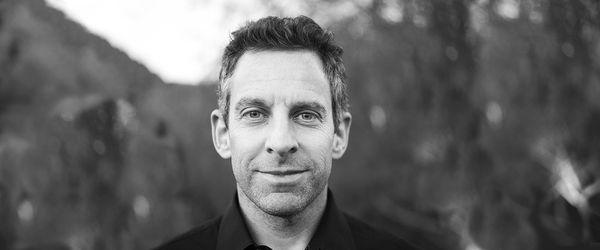
The word “spirituality” makes a lot of people feel uneasy.
The problem is that for many people, “spirituality” suggests belief in supernatural or magical things, or a vague “realm of spirit” that is coincident with or parallel to the material world.
For an agnostic person like me, ideas of magic or souls or spiritual realms are really interesting possibilities, and I’m not closed off to the idea that such things exist in some form.
However, as a lover and practitioner of science, I have to be honest about the fact that I have not personally encountered sufficiently compelling evidence that would cause me to believe in such things. So I remain agnostic, or perhaps more aptly, a possibilian.
But at the same time, the word “spirituality” has a lot of uses and meanings that I do want to claim. As Carl Sagan memorably put it:
“In its encounter with Nature, science invariably elicits a sense of reverence and awe. The very act of understanding is a celebration of joining, merging, even if on a very modest scale, with the magnificence of the Cosmos. And the cumulative worldwide build-up of knowledge over time converts science into something only a little short of a trans-national, trans-generational meta-mind.
“Spirit” comes from the Latin word “to breathe.” What we breathe is air, which is certainly matter, however thin. Despite usage to the contrary, there is no necessary implication in the word “spiritual” that we are talking of anything other than matter (including the matter of which the brain is made), or anything outside the realm of science. On occasion, I will feel free to use the word. Science is not only compatible with spirituality; it is a profound source of spirituality. When we recognize our place in an immensity of light years and in the passage of ages, when we grasp the intricacy, beauty and subtlety of life, then that soaring feeling, that sense of elation and humility combined, is surely spiritual. So are our emotions in the presence of great art or music or literature, or of acts of exemplary selfless courage such as those of Mohandas Gandhi or Martin Luther King Jr. The notion that science and spirituality are somehow mutually exclusive does a disservice to both.”
What Sagan is talking about is something more along the lines of secular spirituality: spirituality as a “soaring feeling,” a feeling of poetic wonder in the face of our sublime and incomprehensible cosmos, or the works of extraordinary human beings.
This is what I tend to mean by spirituality. I also connect it with meditative/contemplative practices such as sitting meditation, mindfulness, yoga, creating art, entheogenic exploration, reading religious/spiritual texts, and spending time in wild nature. I associate it with the general project of attempting to maximize human potential and liberate humanity from unnecessary suffering.
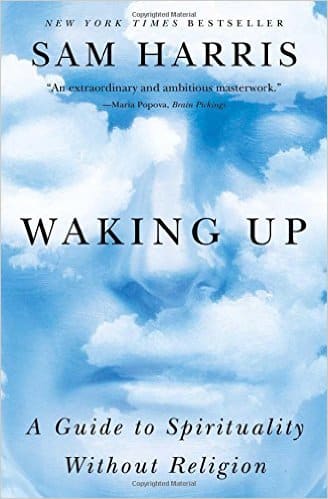
There doesn’t seem to be another word like “spirituality” that can encompass and connote all of these various meanings—this domain of deep internal exploration, inner work, and poetic wonder.
And for this reason I think we need the word “spirituality.” I think we need to find a way to reclaim this word and emphasize the vital importance of this domain of human experience. To be honest, I think large segments of humanity have become estranged from this sphere of experience, and I suspect this is one of the driving forces of the widespread nihilism and alienation we can observe in much of the developed world.
But we need to reclaim this domain without requiring that “spirituality” entail all kinds of unjustified supernatural beliefs, as these aspects tend to be a turn-off for many people and cast spirituality as being at odds with scientific skepticism, which, as I’ve suggested, it need not be.
Sam Harris on Rehabilitating “Spirituality”
I love Sam Harris, and he’s a thinker who is quite relevant to this conversation, as we’ll see in a moment.
First, a bit of background: Harris is a neuroscientist, long-time meditator, and bestselling author whose interests span everything from science, philosophy, and rationality to spirituality, existential risks, and emerging technology.
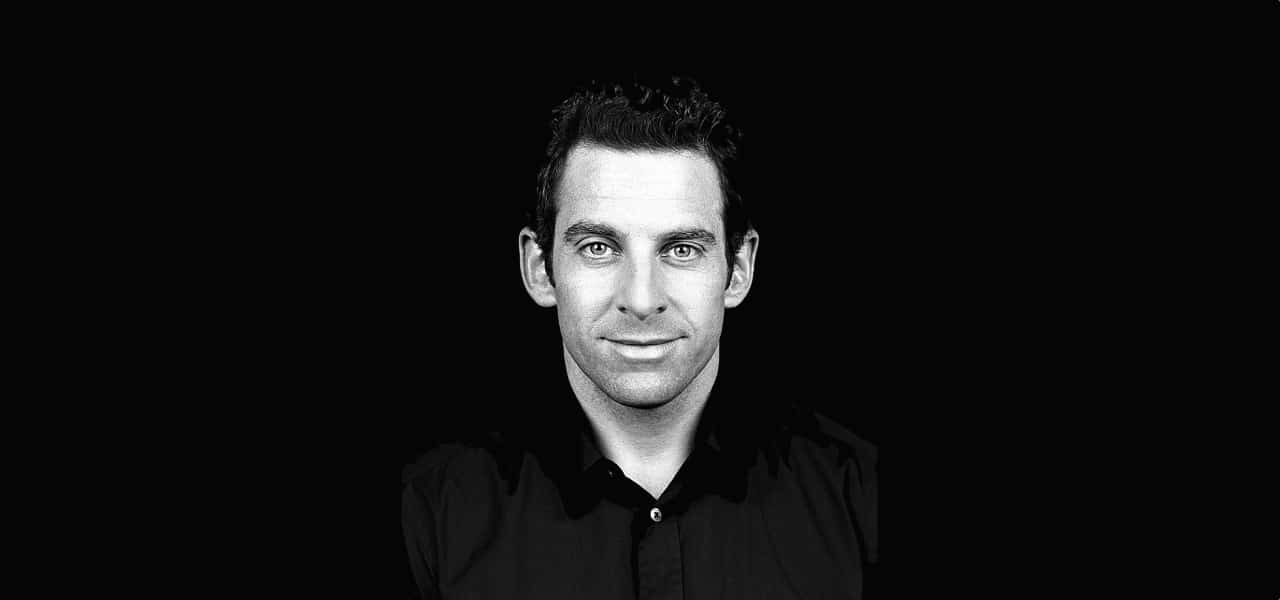
After some prompting last year from my dear friend Jon Brooks, I checked out Harris’ Waking Up podcast, and what I found was really quite stunning.
Harris was one of the most measured, articulate, earnest truth-seekers I had ever had the pleasure of listening to.
He had a calm, sincere tone of voice, reminiscent of David Foster Wallace’s. He asked great, incisive questions. He was one of the most eloquent orators I had ever encountered.
And above all, it quickly became apparent that Sam Harris genuinely cared about the truth. He clearly wanted to have meaningful conversations—even if they were difficult—conversations that would enable the participants to gain a more accurate, nuanced understanding of the topic at hand. Dude had intellectual integrity.
This was instantly appealing to me. Harris and I were on the same wavelength.
Over the course of time, I was also delighted to learn that Sam Harris is one of a select group of people in the scientific community who are striving to rehabilitate the term “spirituality”—who understand the profound value of this domain of the human experience.
Recently I stumbled upon this video from BigThink, in which Harris explains why he’s trying to reclaim the word “spirituality.”
I found that Harris’ thoughts accorded well with my own feelings about spirituality, and he prompted me to consider anew the importance of holding on to spirituality in our somewhat disenchanted, mechanical modern world, and helping others do the same.
Here’s what Harris had to say about rehabilitating “spirituality”:
“I’m almost as embarrassed by the word ‘spirituality’ as every other atheist. It’s not – I’m not comfortable with my use of it. The problem is – and this is a problem you almost never encounter in English. We just don’t have a good word for this domain. We just do not have a good word for the project of taking seriously the notion that you could become like Jesus or become like the Buddha or become someone who inhabits the far end of the positive side of the continuum of human psychology and human well-being. And someone who can have really radical insights into the nature of consciousness by virtue of a disciplined practice like meditation. So to talk about things like awe and well-being and love and positive psychology and happiness, that doesn’t get at how deep and rarified this project can be. It also doesn’t link it to the traditional context in which people have pursued similar projects.
So there is a point of contact between what I’m talking about and, you know, what a Tibetan Lama is doing in a cave for five years. I mean it’s very explicit. Most of these teachings come out of traditions like Buddhism. So while I argue that we have to get out of the religion business and the doctrines that have framed most people’s discussion of these experiences are as unwarranted as I’ve always said, there is no alternative term for the efforts that people can make through meditation or psychedelics or some other means to really transform their consciousness and have insight into the – its intrinsic selfless nature. And it’s inconvenient but I feel like the other words that are available are even spookier, something like mysticism, you know, or more specific like contemplation, the contemplative life. I use contemplative a fair amount but again that doesn’t get at for most people what the subject matter is. So for better or worse I’m just – I’m trying to rehabilitate the word ‘spirituality.’
I mean one burden I think we have is to reclaim good and powerful words no matter how they’ve been misused in the past, no matter what the inconvenient details of their etymology is. So I would say spirituality is one of those words. But a word like ‘evil’ is also spooky for many people. It’s felt that ‘evil’ is a holdover from religion. When religious people talk about ‘evil’ they’re thinking about things like Satan and a force that is somehow not to be understood in scientific or naturalistic terms. And it’s thought, I think, rightly that once we understand psychopathy at the level of the brain fully we will have a discussion of ‘evil’ that will seem to erode any basis for using this spooky word. But I think to lose the word ‘evil’ would be unfortunate and would disempower smart people from making strong moral claims and fighting a war of ideas on this front. And so we need potent words. We just need to be precise about how we use them and the kinds of experiences that merit their use.”
Final Thoughts
I hope you found these passages to be stirring, quality food for thought, as I did.
Whatever you choose to call it, spirituality is one of the richest sources of meaning within the human experience. It’s also one of the most interesting areas to study and think about, and arguably a domain which, when explored, can transform us into more sensitive and compassionate people.
For these reasons, I have found the cultivation of agnostic spirituality to be among the most rewarding endeavors of my life.
I hope that in some small way, this article has helped you to more fully realize the value of spirituality.
By one means or another, we need to alert the secular world to the fact that spirituality need not entail supernatural beliefs.
We need to detach spirituality from its more dubious connotations and reinstate spiritual practices and contemplation on the mantel of Serious and Meaningful Human Pursuits.
———
If you’re interested in digging deeper into spirituality, consider taking our course, 30 Challenges to Enlightenment.
A Few Breadcrumbs
If you appreciated this post and want to go further down the rabbit hole, I recommend the following:
- Sam’s conversations with Joseph Goldstein (#1 | #2 | #3)
- Sam’s book, Waking Up: A Guide to Spirituality Without Religion
- Sam’s essay, Drugs and the Meaning of Life
- Should We “Revere” the Universe? — An Exploration of Yūgen
- Secular Spirituality: How I Experienced the Sacred in Yosemite by Letting Go
- Spiritual Bypassing: How Spirituality Sabotaged My Growth
- 10 “Spiritual” Things People Do That Are Total Bullshit
- Cosmic Orgasm: An Enlightening Story of the Great Mystery of Existence

Jordan Bates
Jordan Bates is a lover of God, father, leadership coach, heart healer, writer, artist, and long-time co-creator of HighExistence. — www.jordanbates.life

